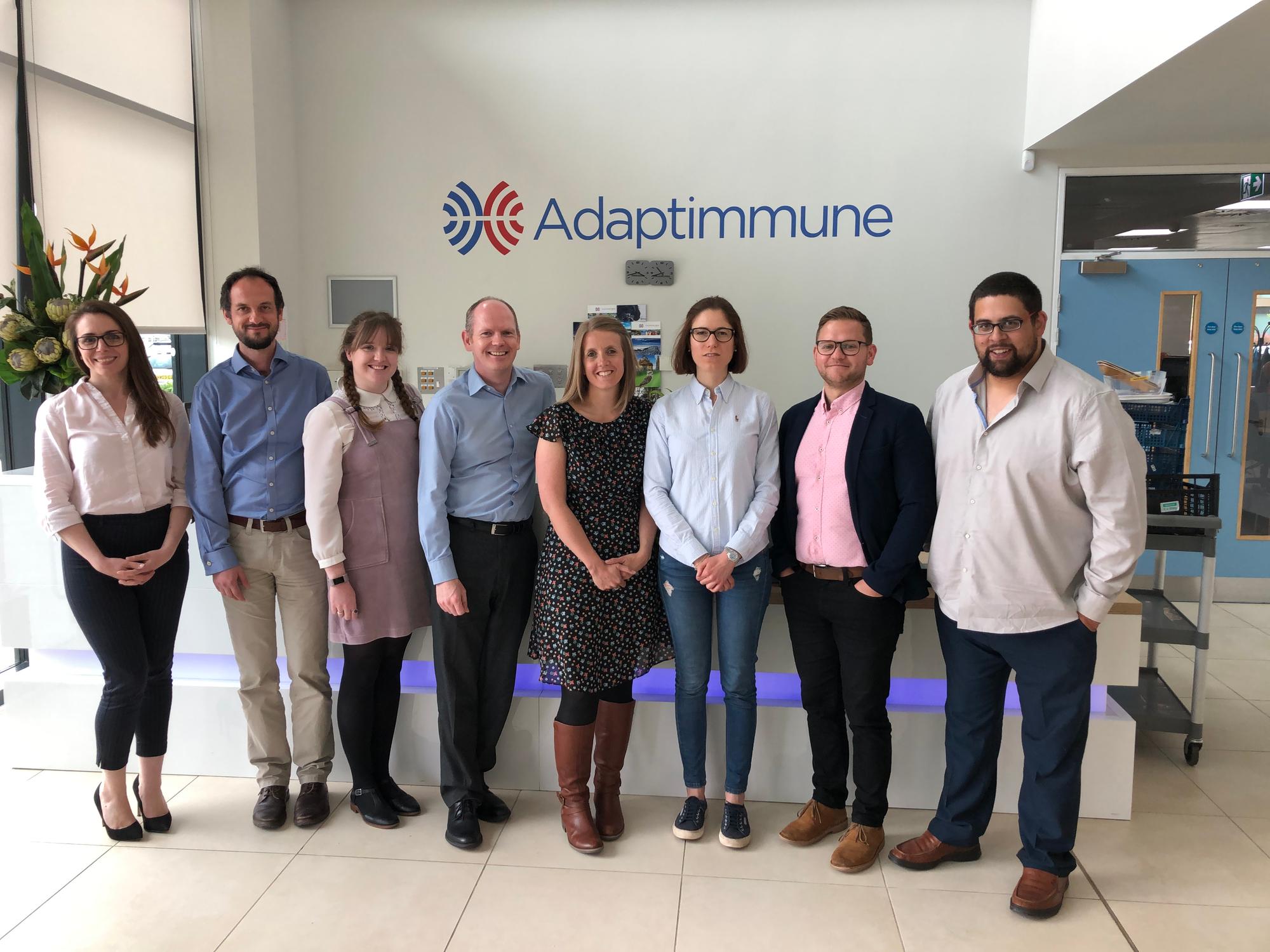BIA MAC LeaP | A mini tour of Adaptimmune
My name is Roger McGilvray and I am a Principal Scientist in the Process Development division at Adaptimmune. I am one of the people selected to be part of the most recent BIA MAC Leadership Programme (LeaP) cohort.
The programme runs over two years with a group of 11 early to mid-career leaders who are committed to continuous improvement. The group meets once every two months and each person in the group hosts the group at their home site. The group gets to select their own project to progress over the course of the programme and we chose to look into what we can learn from other manufacturing sectors. This was my turn to host the group for our second meeting.
The aim of the meetings is to give participants valuable exposure to different technologies, brands and businesses within the BIA membership. The meetings are highly interactive, requiring enthusiastic individuals who are willing to participate and committed to the programme.

Currently in Adaptimmune I have the opportunity to join regular peer group catch-ups with the other team leaders in the Development division. The BIA MAC LeaP meetings give me access to an external peer network that will develop over the course of the two years and hopefully build relationships beyond the programme.
With the visit to Adaptimmune being the first after our initial site meeting, we took the opportunity to visit the BMW Mini plant in Oxford as a pre-meeting event. It was a great way to start the meeting off with everyone not only enjoying the visit but also the opportunity to see the assembly of the cars, following the assembly process from beginning to end. The cars are produced to order with a huge array of options giving almost 1 million different combinations and the capacity to output around 1,000 cars per day. This means the assembly process has to have flexibility to be able to cater for all of these permutations but must be robust enough to maintain the quality standards required by the BMW group. For the group this challenged us to think about our how own processes are run and what aspects we might be able to apply within our own areas.
For the meeting I was in charge of, I was keen to give those attending an idea of what it is like working at Adaptimmune, the challenges we face as we lead research in T-cell TCR therapy, and what we are trying to achieve. This is not easy to do in one day but with the help of our CEO and a few colleagues, we gave an overview of what Adaptimmune does, in the context of some of the recently released clinical data, on the path to fulfilling the promise we believe our therapies could bring to cancer patients once approved.
We then discussed QA challenges when setting up a new facility, a topic of relevance for us as we opened our Milton Park and Navy Yard facilities less than two years ago, and opened a vector manufacturing facility earlier this year. We also talked about career development and what it is like working in cell therapy process development, with a focus on the challenges for project management in the cell therapy space. The rest of the day was spent working on our cohort project and a tour of the Milton Park facility. During our project discussion we talked a lot about the visit to the BMW Mini plant and what we could learn and potentially apply from their manufacturing processes.
The next meeting of the cohort group will be in July at the GSK site in Stevenage.
